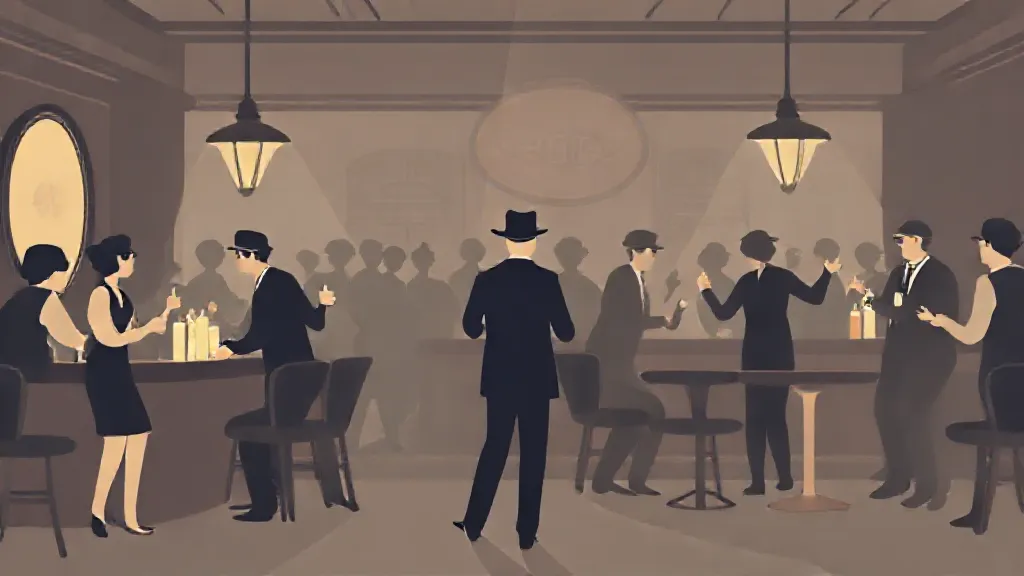Prohibition, enacted through the 18th Amendment in 1920, was a significant chapter in American history that sought to eliminate the consumption of alcohol. Its impact was profound and multi-faceted, influencing various aspects of society, from crime rates and economic conditions to cultural shifts and social behaviors. Understanding how Prohibition reshaped American society requires a comprehensive examination of its causes, implementations, and consequences.
Historical Context of Prohibition
The roots of Prohibition can be traced back to the temperance movement of the late 19th and early 20th centuries, which aimed to reduce alcohol consumption due to its perceived negative effects on society. Organizations like the Women's Christian Temperance Union and the Anti-Saloon League played pivotal roles in advocating for the ban on alcohol. Their efforts culminated in the passage of the 18th Amendment, which took effect in January 1920, marking the beginning of a nationwide prohibition of alcoholic beverages.
The Rise of Organized Crime
One of the most significant effects of Prohibition was the rise of organized crime. As legal avenues for alcohol production and distribution were closed, illegal operations flourished. Speakeasies, underground bars serving illicit alcohol, became popular, and crime syndicates like the Chicago Outfit, led by figures such as Al Capone, capitalized on the demand for alcohol.
This surge in organized crime led to increased violence and corruption, as gangsters fought for control over lucrative smuggling routes and illegal distilleries.
Economic Consequences
Prohibition had a profound impact on the American economy. The closure of breweries, distilleries, and bars resulted in significant job losses and economic downturns in related industries.
Tax revenues from alcohol sales, which had previously supported government budgets, vanished. The government struggled to replace this lost revenue, leading to budget deficits. Furthermore, the illegal alcohol trade created a shadow economy that eluded taxation and regulation, complicating economic recovery during the Great Depression.
Social Changes and Cultural Shifts
Prohibition also instigated a cultural transformation in American society. The 1920s, often referred to as the "Roaring Twenties," saw a rebellion against traditional values, with many young people embracing a more liberated lifestyle. Jazz music, flapper culture, and the emergence of new social norms characterized this era.
The tension between traditionalists and modernists intensified, as Prohibition became a symbol of the struggle between conservative and progressive ideologies.
Public Sentiment and Repeal
As the negative consequences of Prohibition became increasingly apparent, public sentiment began to shift. By the late 1920s, many Americans were disillusioned with the law, viewing it as ineffective and counterproductive.
The rise in crime, corruption, and the failure to curb alcohol consumption led to growing calls for repeal. This culminated in the 21st Amendment in 1933, which officially ended Prohibition, reflecting a significant change in public opinion and government policy.
Impact on Law Enforcement and the Justice System
Prohibition also had lasting effects on law enforcement and the justice system.
The need to enforce the ban on alcohol led to the expansion of police powers and the establishment of federal agencies like the Bureau of Prohibition. This era saw an increase in police corruption and the use of violence to combat illegal activities. The experiences gained during Prohibition would later influence law enforcement practices in dealing with other forms of vice and crime.
Legacy of Prohibition in Contemporary Society
The legacy of Prohibition continues to influence American society today. The era is often cited in discussions about drug policy and the effectiveness of prohibitive laws. It serves as a historical case study on the unintended consequences of legislation aimed at regulating personal behavior.
The lessons learned from Prohibition inform contemporary debates on issues such as drug legalization, public health, and individual freedoms.
Conclusion: A Complex Impact
In conclusion, Prohibition had a complex and far-reaching impact on American society. It reshaped cultural norms, fueled organized crime, and altered economic landscapes, ultimately leading to its own repeal.
The era serves as a critical reminder of the challenges associated with legislating morality and the intricate relationship between law, society, and individual behavior. Understanding Prohibition is essential for grasping the evolution of American social and legal frameworks, as its effects resonate in various facets of contemporary life.
